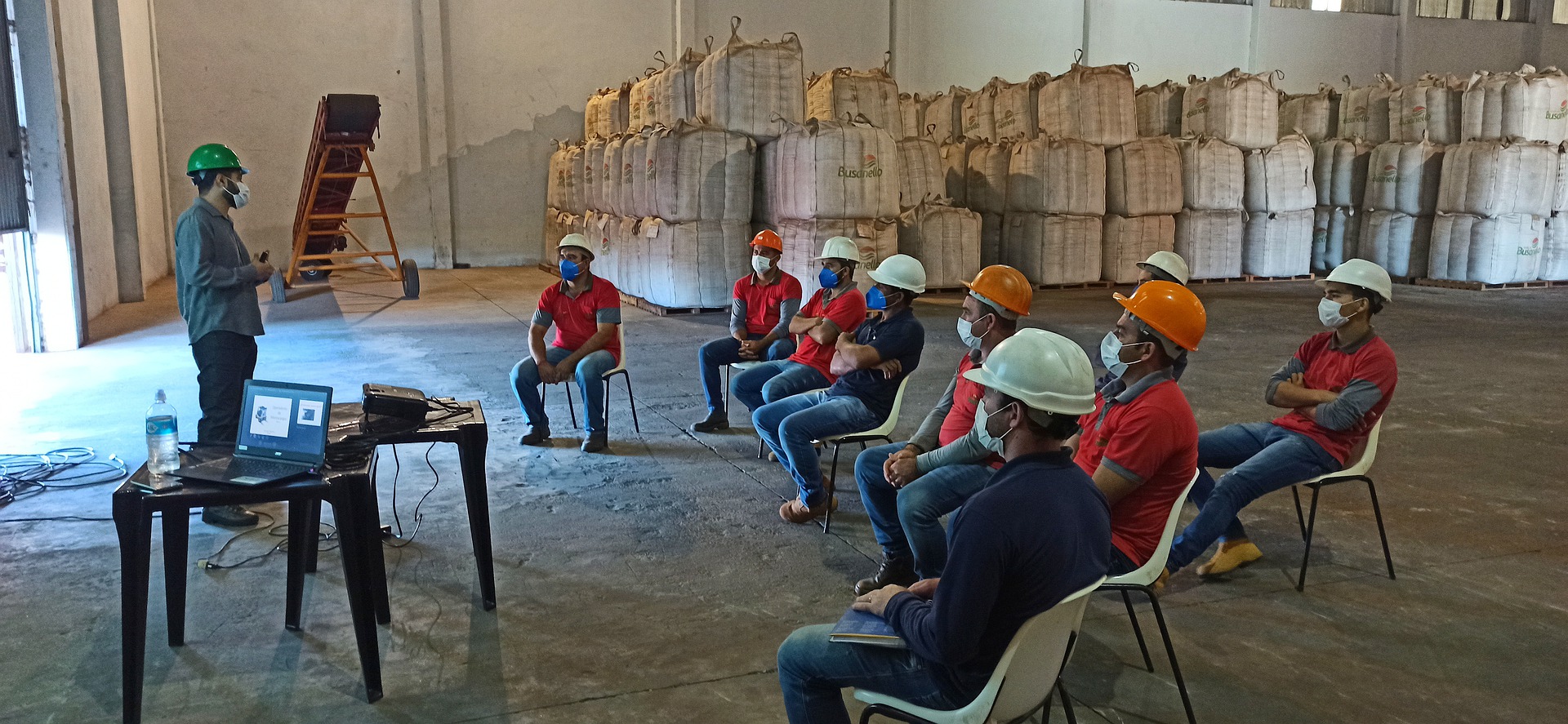Everyone who works for you, including contractors, needs to know how to work safely. This is a legal obligation, and it is therefore up to you to find ways to make sure your workers have the skills and knowledge they need to stay safe and healthy.
What are toolbox talks?
Toolbox talks are a common way of raising safety awareness on site and are typically held as part of an organisation’s safety programme. They are usually carried out at the start of the working day around once a week, although this frequency can increase if something changes, such as new workers arrive on site.
Toolbox talks are usually short, around 15 to 20 minutes, and can cover a whole range of topics that are relevant to the work carried out and the work environment. For instance, they could be used to promote general safety awareness, such as the likelihood of slips, trips or falls or the wearing of PPE. They can also be useful for introducing new safety rules, equipment or preventive measures.
How do toolbox talks fit into ISO 45001?
Toolbox talks can be an extremely useful process within an ISO 45001 occupational health & safety management system. Here are just some ways that the meeting can be used to help you stay compliant.
Communication
ISO 45001 is not just focused on what your organisation’s leadership do or top-down communication. The international Standard for occupational health & safety also places emphasis on the participation and involvement of workers across the business, which is explicitly mentioned in clause 5.4.
Toolbox talks are an excellent way to engage workers across the business as they give them an opportunity to exchange information and experiences which can improve health and safety awareness. This can also help to build trust in your organisation, as was the case with our client, ClearView Communications.
Assessing risk
A toolbox talk provides a good opportunity to encourage workers to discuss your risk assessments and method statements. This means you can assess whether they are relevant to the current site and if anything needs to be added or changed. This can be used to feed into your processes for risk and hazard identification, which are required by clause 6 of the ISO.
This kind of toolbox talk may also be particularly pertinent after an incident. If an injury does occur on site, toolbox talks are ideal for discussing why it happened, what the ongoing risks are and how they can be prevented or mitigated in future.
Documentation
Keeping documentation for your ISO management system is a key part of maintaining it. So, by making a record of your toolbox talks, you can gather evidence to demonstrate what you have communicated to your workforce and when, which will be useful when your external audit rolls around.
When writing up your toolbox talk, include details such as:
- Where it takes place
- The date and time
- Who delivers the talk and their signature
- The names and signatures of those who attended
Your toolbox talk records may also be requested by HSE (the Health and Safety Executive) if there is an incident within your organisation, so it is good practice to always ensure that these records are kept.
Find out more about ISO 45001
If you’d like to find out more about ISO 45001, the international Standard for occupational health & safety, then head over to our dedicated webpage.
You can also talk to us by calling 0333 344 3646 or by emailing [email protected].

